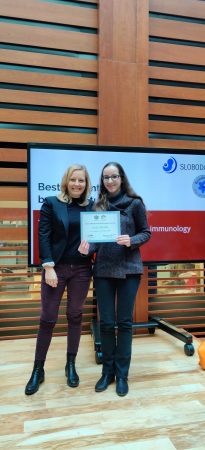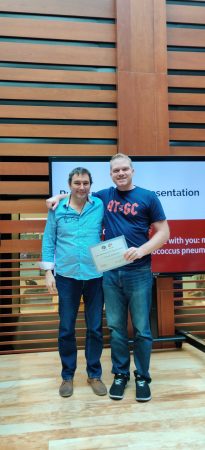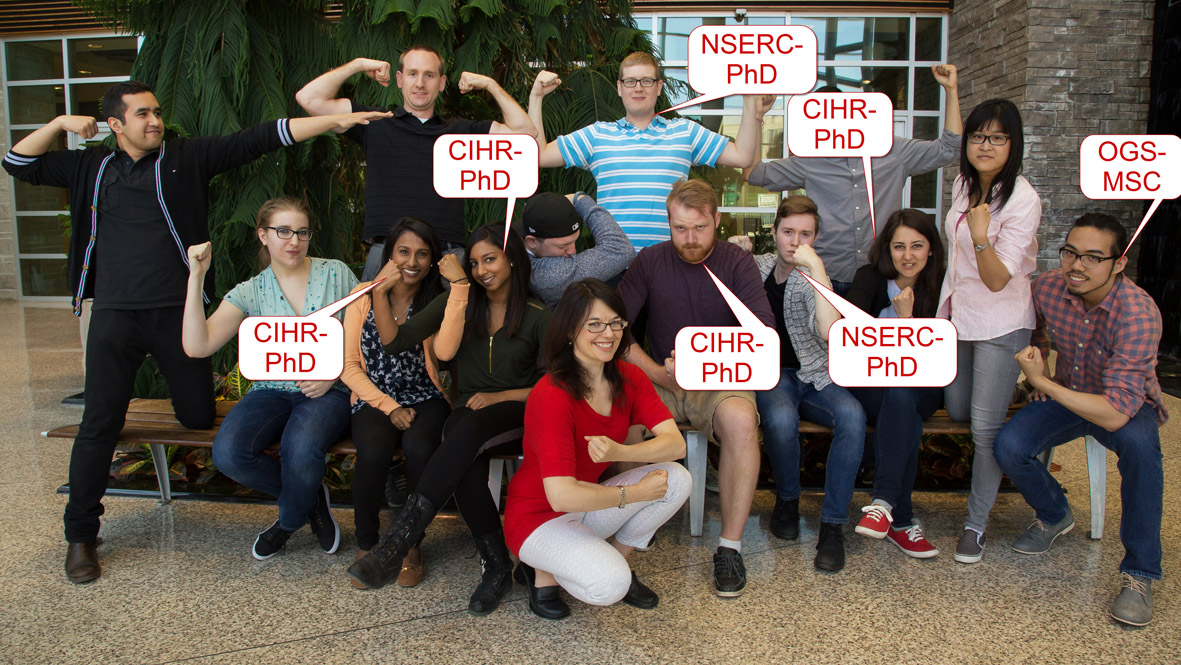Click here to access: Monocyte-driven inflamm-aging reduces intestinal barrier function in females published in Immunity and Ageing, September 2024.
This publication by former PDF, Dr Candice Quin and team, discovers that inflammatory markers and gut permeability increase with age, but the leaky gut seems to be a female specific phenomena in both mice and humans.
Bluesky explainer thread below and here https://bsky.app/profile/msmacrophage.bsky.social/post/3l5ethyexgp2u
New publication alert! “Monocyte-driven inflamm-aging reduces
intestinal barrier function in females” by lead author Dr Candice Quin @uniofaberdeen.bsky.social. Read on for some surprising insights into sex differences in aging, the microbiome, inflammation, and the ‘leaky gut’ hypothesis….1/n
With age levels of inflammatory mediators (cytokines, CRP, & others) increase in the blood and tissues. This is often called ‘inflamm-aging’, and higher than age-average levels of these mediators are associated with chronic disease, frailty, and other age-associated ills. 2/n
Men & women age differently (‘men die quicker, women live sicker’)so it stands to reason they might ‘inflam-age’ differently, but very few studies on aging investigate sex differences in the aging trajectory. We looked at cellular & soluble inflammatory markers and saw sex differences! 3/n
We were surprised by the magnitude of sex differences but immunology is literally one of the worst disciplines when it comes to reporting by sex https://elifesciences.org/articles/70817
By why do we ‘inflamm-age’ in the first place? Might the mechanisms of inflamm-aging differ by sex 4/n
One of the major theories is that with age a dysbiotic microbiota causes the gut to become leaky (alternatively, the gut gets leaky with age and this alters the microbiota). Bacterial products leak out and cause inflammation. We’ve published in mice, others in other model organisms 5/n https://www.cell.com/cell-host-microbe/fulltext/S1931-3128(17)30112-9?elsca1=etoc&elsca2=email&elsca3=1931-3128_20170412_21_4_&elsca4=Cell%20Press
Evidence for the ‘leaky gut’ hypothesis is weak in healthy humans (despite what the probiotic industry might say). Leakiness is generally found in people who have comorbidities, or are frail so we looked at healthy/non-frail male (41) females (54) btw 20-102 yrs and were surprised to find…6/n
…that women appeared to have leakier guts over the life course (as measured by the serum marker zonulin- imperfect), and only women had evidence of an age-associated increase in the bacterial product LPS in their serum. Could the leaky gut hypothesis be female specific? 7/n
Human studies are observational so we turned to mice to understand the chain of causality. Old female, but not male, mice did indeed have leakier guts and this seemed to be caused by TNF produced by the elevated number of circulating inflammatory monocytes. 8/n
Tl;dr The age-related leaky gut -> increased circulating bacterial products -> systemic inflammation hypothesis may only be true in females! (also – always investigate sex in your research) 9/n
Why? Well the female gut changes dramatically during pregnancy to increase nutrient absorption – perhaps that is why women seem to have more permeability over the life-course. We are doing some cool ongoing studies in vitro looking at male vs female monocytes ability to break the gut barrier. 10/n
Caveats: This was a non-frail, mostly white population – aging & immunology studies show tremendous differences by location so needs to be reproduced. Gut permeability measures were done by looking at serum markers – easy on the participant but indirect at best. 11/n
Thanks to the whole (unfortunately not on Bluesky team)! This was an incredibly fun and challenging project to work on but has cemented my commitment to considering sex in all the research we do. 👩🔬🧪🦠🚨 12/12






